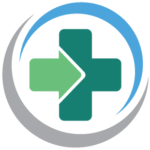



Since our founding in April 2016, we’ve grown from a dedicated Neurophysiology practice to a trusted partner for doctors and hospitals. In 2020, we expanded our services to specialize in EEG’s, sleep studies, and diagnostics focused on psychiatry and pediatrics.
Through innovation and strong relationships, we remain committed to advancing brain and sleep health with precision and care.

A healthcare provider refers a patient to our practice for specialized diagnostic services, such as EEG's or sleep studies, based on their medical needs.
Once referred, we obtain authorization from the patient’s medical aid or insurance to ensure coverage for the procedures.
The patient undergoes the diagnostic procedure (e.g., EEG, sleep study), where we carefully monitor and gather data to assess their condition.
After the procedure, we analyze the data and provide a detailed report to the referring doctor, who uses it to guide further treatment or diagnosis.

Your healthy lifestyle starts with a good night’s rest

Patient
EEG for Temperal Lobe Epilepsy done very gently. Humility, respect and kindness in a situation where a patient feels vulnerable is generally a unique thing. Riaan showed humanity when I needed it the most. Thank you.

Patient
The services are excellent, if you have a Neurophysiology problem, you are at the right place, becauce the modern equipment, will blow your mind away, and will show you immediately your problem.
EEG (Electroencephalogram) records the brain’s electrical activity, helping doctors identify abnormal patterns linked to conditions like epilepsy, sleep disorders, and various brain abnormalities.
Types
Sleep studies monitor your body’s activity during sleep, including breathing, heart rate, and brain activity. It helps diagnosing conditions like sleep apnea, insomnia, restless leg syndrome, and other sleep-related disorders, providing insights for effective treatment.
CPAP titration is a process where the optimal pressure of a CPAP machine is determined while a patient sleeps. Helps diagnosing and treat sleep apnea by ensuring the patients airway remains open throughout the night, improving breathing patterns and sleep quality.
CPAP and APAP monitoring involve tracking the effectiveness of these devices in treating sleep apnea. By adjusting pressure levels based on real-time data, these devices help ensure sufficient airflow, improving sleep quality and managing sleep apnea symptoms. Monitoring ensures that the settings remain optimal for each patient’s needs over time.
The Multiple Sleep Latency Test (MSLT) measures how quickly a person falls asleep during the day. It is primarily used to diagnose sleep disorders like narcolepsy and excessive daytime sleepiness. The test involves several scheduled naps throughout the day to assess the onset of sleep and the presence of abnormal sleep patterns, helping doctors understand the severity and nature of the condition.
Sleep screenings monitor key factors like desaturation (drops in blood oxygen levels), oxygen levels, body movement, and pulse during sleep. These indicators help identify sleep disorders such as sleep apnea, where oxygen levels drop due to breathing interruptions, or conditions related to abnormal movement or heart rate. While it’s not a full diagnosis, the screening provides valuable data that can guide further testing and treatment.
Intraoperative monitoring monitors the nervous system during surgery to detect any abnormalities or potential nerve damage. It helps ensure better patient safety and outcome by allowing immediate adjustment to prevent neurological issues during surgery